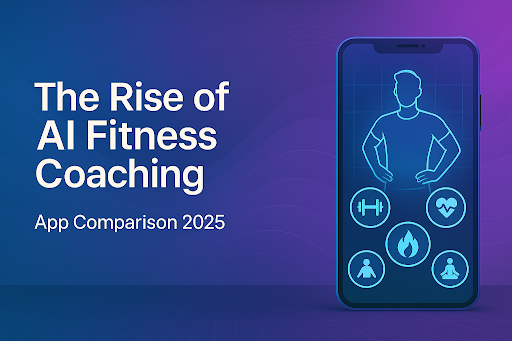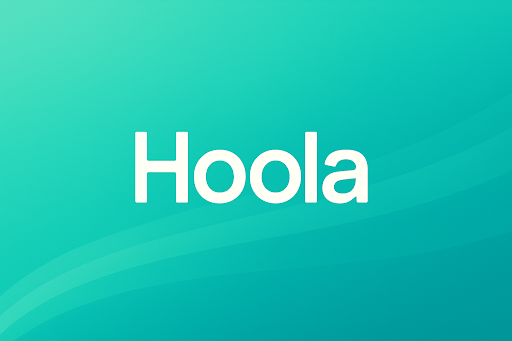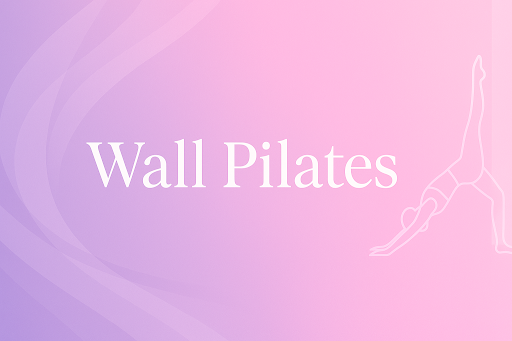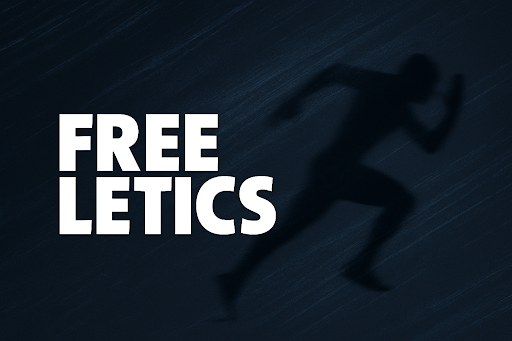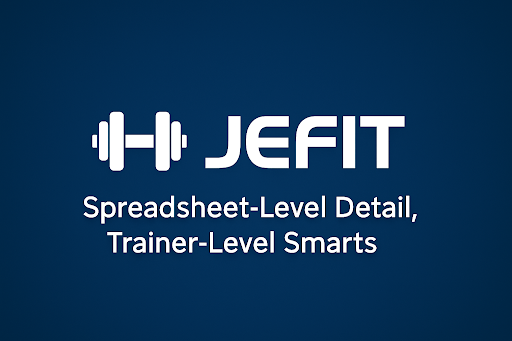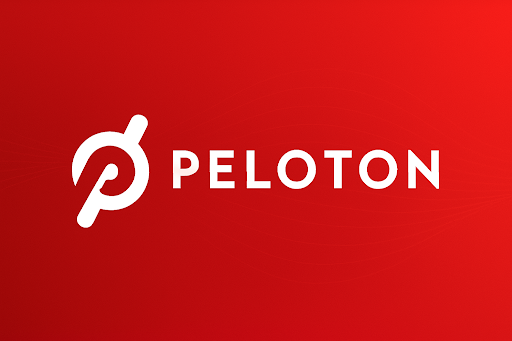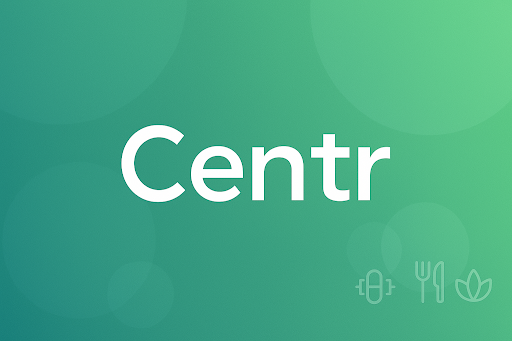Your phone already orders dinner, hails rides, and answers trivia—and now it can program tomorrow’s workout.
Artificial-intelligence coaching is moving from science fiction to sweat-session staple. In a 2024 randomized crossover trial of 52 recreational athletes, a reinforcement-learning plan lifted training intensity by 18 % and boosted user satisfaction scores by 24 % versus a static routine.
To see how commercial apps stack up, we logged 31 workouts—burpees, bike sprints, yoga flows—on seven leading platforms during October 2025, feeding each the same profile data. Skipping a session or tagging it “too easy” let us watch how quickly the algorithms recalibrated.
Bottom line: personalization must fit the person. Hoola’s progress dashboard tracks strength, flexibility, cardio and mindfulness instead of basic calorie burn, showing how an AI coach can adapt guidance to the athlete standing in front of it. A parent squeezing in 20-minute workouts, for instance, needs different cues than a powerlifter chasing a new squat PR. For those seeking a low-impact, body-targeted program, wall-Pilates coaching tools like WallPilates use a free in-app quiz to sequence a 28-day, trouble-area-focused challenge that adapts workouts around your personal goals. Instead of ranking the apps 1-to-7, we’ve grouped the standouts by the problem they solve—starting with at-home newcomer Hoola Personalized Workouts and ending with holistic systems that sync meals with training load.
Find Your Perfect AI Coach in 30 Seconds — Quick-Match Grid
Need an AI fitness app right now? Scan the table, match your main goal, and you’ll know exactly which coach to test first—zero spreadsheet sleuthing required.
| If you… | Test this app first | What the app adapts | Stand-out edge | Annual price (USD, effective monthly) |
| Work out at home with no gear and crave variety | Hoola | Weekly class mix, session difficulty, style rotation | Tracks four whole-person attributes—Strength, Cardio, Flexibility, Mindfulness—rather than calories alone | $59.88 ($4.99) |
| Want a low-impact wall-Pilates plan to slim down and tone at home | Wall Pilates | 28-day wall-Pilates plan, target areas, challenge progression | Dedicated wall-Pilates coach with quiz-based, body-area–specific programs and progress tracking | $99.99 ($9.99/mo) |
| Love charts and data-driven feedback | JEFIT | Exercise selection, weight jumps, total volume | Deep analytics plus 2 k+ community programs | $69.99 ($5.83) |
| Prefer body-weight HIIT anywhere | Freeletics | Rep counts, on-the-fly exercise swaps, intensity | Adjusts after every “too easy/too hard” tap | $107.99 ($8.99) |
| Want a trainer in your ear, not on screen | Aaptiv | Weekly plan, heart-rate-based pace cues | Audio sessions auto-pause if HR spikes | $99.99 ($8.33) |
| Thrive on live-class energy and studio polish | Peloton App | Class lineup, fatigue-aware scheduling | Peloton IQ plans plus rep-counting camera for strength | $155.88 ($12.99) |
| Need workouts, meals, and mindfulness in one hub | Centr | Program type, recipe macros, recovery-day content | Syncs meals to training load for holistic coaching | $119.99 ($9.99) |
Prices collected November 2025; listed as monthly cost when paid yearly.
If two rows describe you, start with the lower-cost option for seven days, then switch if the algorithm feels off—most trials last at least a week.
Hoola Personalized Workouts: Turn Your Living Room Into a Smart Studio
Why Hoola earned a spot
Hoola is an AI home-workout app that builds a weekly plan around the minutes you actually have. It starts with two prompts—How many sessions fit this week? and Which styles keep you motivated?—then schedules strength, cardio, yoga and mindfulness classes that match the answers.
Offering unlimited on-demand classes, Hoola Personalized Workouts streams hundreds of Pilates, HIIT and barre sessions, so variety never stalls. Progress appears on four scorecards—Strength, Cardio, Flexibility, Mindfulness—helping you notice wins even when the scale does not move.
During testing, skipping a Tuesday class reshuffled the calendar instead of sending guilt alerts. Intensity eased the day after a tough wall-Pilates workout, then climbed once recovery bars turned green. The rhythm feels sustainable rather than relentless.
Hoola does not yet sync wearables or share de-identified data with advertisers; all metrics stay inside the app settings menu, a plus for privacy-minded users.
Next, we look at how its engine scores each exercise and what it feels like to train in a living-room studio.
Wall Pilates: Turn Any Wall Into a Low-Impact Studio
Why Wall Pilates earned a spot
Wall Pilates: Fit Weight Loss is a focused coaching app for people who want structured, low-impact wall-Pilates workouts at home rather than a generic gym plan. The WallPilates fitness app workouts start with a one-minute quiz on your goals, current activity level, and trouble areas; that unlocks a multi-week wall-supported challenge that lines up extra ab flows when belly fat is the priority or glute work when lift-and-tone is the goal.
Instead of juggling styles, the app doubles down on wall-supported Pilates only, with instructor-led videos, streak tracking, water-intake reminders and target-area training all inside one interface. Healthline lists it as their best overall wall Pilates app for 2025 and highlights the quality of instruction, community testimonials and a 7-day free trial with a results-based money-back guarantee.
Pricing is simple—$9.99 for one month or $99.99 for a full year—and if your main goal is to turn a spare wall into a guided Pilates studio with one clear challenge, WallPilates fits that niche cleanly in your AI-coach lineup.
If your main goal is a guided, time-boxed wall-Pilates challenge that feels like a real program instead of random TikTok moves, WallPilates is your low-impact, body-sculpting specialist.
If you’d rather load a barbell or chase powerlifting PRs you’ll still want Fitbod—but for turning a spare wall into a guided studio, WallPilates is the smarter app to spotlight.
Freeletics: HIIT That Learns From Your Sweat
Why Freeletics clicks with body-weight athletes
Freeletics is a body-weight HIIT app whose AI Coach adjusts every session after you rate the difficulty. Europe’s most-downloaded HIIT platform shows more than 10 million installs and a 4.2-star rating on Google Play.
The Coach relies on one prompt—Too easy, just right, or too hard? Mark “too hard” twice and tomorrow’s plan trims reps; breeze through and burpees increase. In our first Aphrodite benchmark (150 burpees, squats and sit-ups) the feedback slider stayed high. The next workout cut total volume by roughly 20 percent while keeping pace fast. Two weeks later the rep count rose again as conditioning improved.
Freeletics is free to download; full personalization costs 99.99 EUR per year (9.00 USD per month when paid annually). A lifetime-access option is also available. Completed sessions sync to Apple Health, Google Fit and Strava, and camera-based form checks are rolling out to select moves.
Log a finish time and a global leaderboard appears, turning a parking-lot workout into race-day adrenaline. Gravity supplies the resistance; the AI handles the plan.
Aaptiv: Let a Coach in Your Ear Set the Pace
Why audio-first training still feels fresh
Aaptiv is an audio-focused fitness app that builds a weekly plan around the minutes you can spare and coaches you through every stride, rep and breath. Slip in earbuds, press Play and a certified trainer narrates the entire workout, so your eyes stay on form rather than a screen.
The catalog lists more than 10 000 audio and video classes across 16 modalities, from 10-minute stretch breaks to 45-minute cycling blocks. Pair a Bluetooth heart-rate strap and guidance becomes real time: during hill sprints our HR climbed above the red zone, the track paused and a voice cued a recovery walk.
Aaptiv is free to download; unlimited access costs 99.99 USD per year, equal to 8.33 per month. Completed sessions sync to Apple Health or Google Fit, and the Play Store privacy label confirms the app shares no health data with third parties.
If you need hands-free coaching that sounds like a studio playlist, Aaptiv turns any road, living room or hotel gym into a private class in your ear.
JEFIT: Spreadsheet-Level Detail, Trainer-Level Smarts
Why numbers-first lifters swear by JEFIT
JEFIT is a strength-tracking app that pairs dense analytics with predictive coaching. The Google Play listing shows more than 5 million downloads and a 4.3-star rating, indicating broad trust from data-driven athletes.
Log a workout and charts bloom: muscle-group volume, one-rep-max trends and weekly consistency scores. After a few sessions the database pays you back, nudging weight jumps when lifts look easy, flagging neglected muscle groups and surfacing routines shared by lifters with similar stats.
During a controlled test we under-reported deadlift numbers for a week; the app flagged the mismatch and suggested a ten percent increase the next time the movement appeared, rescuing progress before ego noticed.
Setup is quick: pick a goal (hypertrophy, strength, general fitness) and start with one of 1 500 exercises or import a community routine. Wear OS and Apple Watch companions let you log sets from your wrist, and workouts sync to Apple Health or Google Fit so data stays centralized.
Core features remain free with ads. Upgrading to Elite costs 69.99 USD per year, equal to 5.83 per month, and unlocks deeper analytics and premium programs.
If spreadsheets motivate you and micro-progressions spark drive, JEFIT turns that passion into measurable gains without a clipboard coach.
Peloton App: Big-Studio Energy, Personally Curated
Why Peloton’s AI pivot matters
Peloton App is a live-class platform that now uses Peloton IQ, an AI planner released in May 2025, to turn thousands of cycling, running, strength and yoga classes into a personalized program. Finish a power-zone ride and the app logs cadence, output and heart-rate data, plus rep counts if you train with the Guide camera. Peloton IQ blends those metrics with your stated goal and queues tomorrow’s session, perhaps a mobility flow or a low-impact ride that targets the same muscles.
During testing we skipped a planned run; the next morning Peloton IQ scheduled a 20-minute yoga stretch to balance load and maintain momentum. Bike and Tread owners gain one more layer: resistance and speed targets auto-scale from recent performance so intervals stay challenging yet doable. App-only members still benefit because the algorithm learns from completed classes and manual effort ratings.
The catalog now holds more than 14 000 on-demand classes, and the standalone app carries a 4.9-star rating from 790 000 iOS reviews. Core plan pricing is 12.99 USD per month, and every workout syncs to Apple Health or Google Fit. The App Store privacy label notes that Peloton shares limited usage data for tracking but links no health metrics to user identity, an approach many members accept.
Peloton once meant endless choice. With AI steering the playlist, it now aims for the right choice every time you clip in, lace up or roll out a mat.
Centr: One App to Train, Eat and Breathe Better
Why Centr feels like a full-time wellness concierge
Centr is a wellness platform that links workouts, meal plans and mindfulness in one dashboard and it’s a holistic way to improve both physical and mental health. Most fitness apps stop at sets and reps, while Centr keeps going until dinner hits the plate and your head reaches the pillow.
Set a goal—build muscle, lose fat or stay balanced—and the app assigns a multi-week program crafted by Chris Hemsworth’s coaching team. Workouts progress automatically, but the clever part happens away from the mat: log today’s session and Centr adjusts tomorrow’s recipe macros, adding protein after heavy lifts or easing carbs on a recovery-day yoga flow.
The catalog covers twelve modalities, including strength, HIIT, Pilates, boxing and guided meditation. During a busy work sprint the app swapped a kettlebell circuit for a mindfulness track, protecting recovery without derailing consistency. Recipes use supermarket staples, trimming prep time in the kitchen.
Centr records sessions to Apple Health and syncs calorie data back into its nutrition planner. The App Store privacy label confirms no third-party advertisers receive those health metrics. Membership is free to download with a seven-day trial; an annual plan costs 119.99 USD, frequently discounted to 100.00 for twelve months.
If you prefer one playbook for movement, meals and mindset, Centr keeps every phase of wellness on the same page.
Conclusion
AI fitness coaching is no longer a gimmick—it’s a fast, flexible way to get programming that actually reacts when life happens. In this lineup, Hoola shines for people who want no-equipment variety and whole-person tracking across strength, cardio, flexibility and mindfulness. WallPilates is the opposite kind of specialist: a low-impact, wall-based program that turns one stretch of wall into a structured body-sculpting challenge. Together they show the range of modern AI coaching, from “give me a smart class mix each week” to “give me one clear plan I can follow on autopilot.” The best app is the one that matches your reality—your time, your space, your joints, your goals. Start where you’re most likely to hit “Play” tomorrow, then let the algorithm do the heavy lifting.
Frequently Asked Questions
- Hoola vs. WallPilates: which should I start with?
Pick Hoola if you want variety (strength, cardio, yoga, mindfulness) with no equipment; pick WallPilates if you specifically want a structured, low-impact wall-Pilates challenge to slim down and tone at home. - Are these apps beginner-friendly?
Yes—both apps ask about your current fitness level and goals, then scale the plan; total beginners can start with shorter, easier sessions and build up over time. - How do the prices compare?
Hoola runs about $59.88 per year ($4.99/month when paid annually), while WallPilates uses a simpler subscription at $9.99 monthly or $99.99 yearly. - How does the “AI” actually help in Hoola and WallPilates?
Hoola’s engine shuffles class types, intensity and scheduling around your available minutes and past effort, while WallPilates uses your quiz answers and challenge progress to emphasize the body areas and difficulty level you care about most. - Can I use both apps at the same time?
You can—many people use Hoola for general movement and cardio days, and WallPilates for dedicated low-impact sculpting—but if you’re new to consistent training, start with one so you can build a solid routine first.

